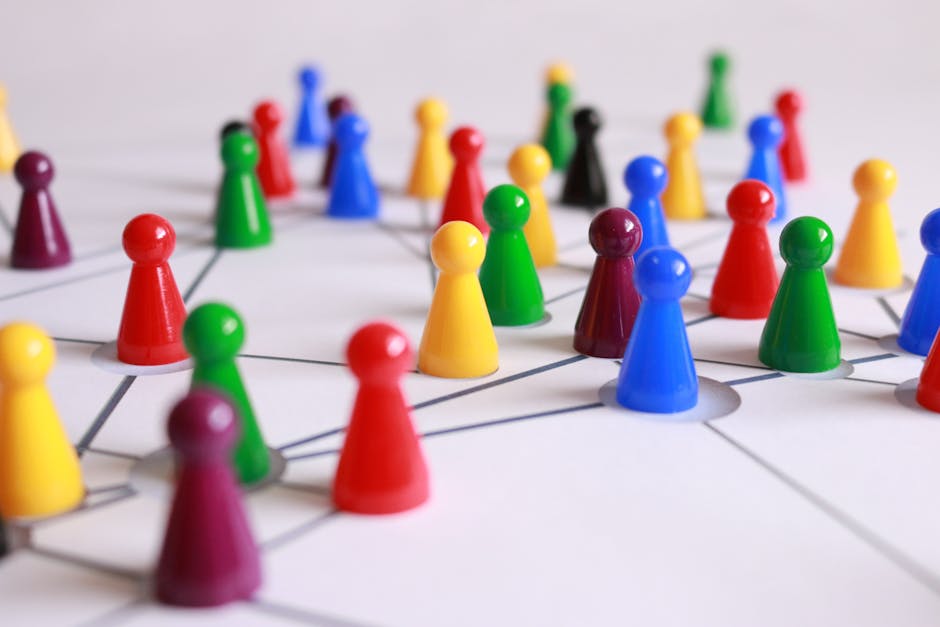My 30-day Digital Detox Challenge: What I Learned About My Focus
In a world where our attention is the new currency, I found myself feeling increasingly bankrupt. My days were a blur of notifications, endless scrolling, and the constant hum of digital demands. It wasn’t just my time that was fragmented; it was my focus. I struggled to read a book for more than ten minutes without checking my phone, deep work felt like an impossible dream, and even conversations sometimes felt punctuated by an urge to glance at a screen. This pervasive sense of mental fog and scattered attention led me to a radical decision: a 30-day digital detox. Not just a break, but a deliberate challenge to understand the true cost of my digital habits on my most precious cognitive asset: my focus.
The Drowning Sensation: How My Focus Faltered Before the Challenge
Before embarking on this digital pilgrimage, my focus felt like a leaky bucket. Every new email, every social media alert, every breaking news headline felt like another hole punched into my ability to concentrate. I’d sit down to write, only to find myself opening a new tab to research something tangentially related, then another to check a social feed, and suddenly an hour had vanished. This wasn’t just about procrastination; it was a genuine inability to sustain attention on a single task, even one I enjoyed. My brain felt constantly ‘on alert,’ scanning for the next hit of information or novelty, a state that left me feeling exhausted but paradoxically unproductive. It was a vicious cycle: the more distracted I became, the more I sought out distractions, further eroding my capacity for deep work and sustained thought. My mental landscape was cluttered, noisy, and utterly devoid of the quiet spaces needed for true concentration.
The insidious nature of this fractured focus was how normalized it had become. Everyone around me seemed to be living in a similar state of perpetual partial attention. We celebrated multitasking as a virtue, unaware that we were sacrificing depth for breadth, and genuine engagement for fleeting interaction. My own experience was a stark reminder that while technology offered unparalleled access to information, it also demanded an unprecedented toll on our internal quietude – the very foundation of focus.
Unmasking the True Cost: My Attention’s Erosion Revealed
The first few days of my digital detox were brutal. The withdrawal symptoms were surprisingly intense: a phantom vibration in my pocket, an inexplicable urge to pick up my phone when bored, and a profound sense of missing out. But beneath these superficial feelings, something more significant began to surface. I started to recognize the sheer volume of mental energy I had been expending just to *resist* digital distractions, or to *recover* from them. Each notification, even if ignored, pulled a tiny thread from my cognitive fabric. Each quick check of an app, even if brief, required my brain to context-switch, a process that science tells us is incredibly inefficient and tiring.
What I learned was that my focus wasn’t just being *interrupted*; it was being *eroded* at a fundamental level. My brain had been rewired to expect constant novelty and instant gratification. Tasks that required sustained effort, like reading a complex article or brainstorming a new project, felt incredibly tedious because they didn’t offer the same rapid-fire dopamine hits. The challenge forced me to confront how much my attention span had shrunk, how impatient I had become with anything that didn’t provide immediate stimulation. It was a sobering realization that the “always-on” culture had turned my mind into a perpetual motion machine, incapable of settling down for the long haul.
This period also highlighted the difference between genuine curiosity and passive consumption. Before the detox, much of my digital engagement was mindless – scrolling without purpose, absorbing information without processing it. Without the constant stream of digital input, my mind began to seek out deeper, more meaningful engagement. I found myself returning to neglected hobbies, engaging in longer conversations, and simply observing the world around me with a renewed sense of presence. This was the initial, uncomfortable, but ultimately liberating phase where the true extent of my attention’s erosion was laid bare, paving the way for its slow, deliberate reconstruction.

Reclaiming My Mental Real Estate: The First Glimmers of Deeper Focus
Around the end of the first week, a shift began. The initial discomfort gave way to a nascent sense of calm. My brain, no longer bombarded by external stimuli, started to settle. The phantom vibrations faded, and the urge to constantly check my phone diminished. This newfound quietude wasn’t just a lack of distraction; it was the emergence of internal space. I started to notice my thoughts more clearly, without the constant chatter of the digital world vying for attention.
One of the most profound early learnings about my focus was the rediscovery of sustained reading. For years, books had felt like monumental challenges. Now, I found myself picking up novels and non-fiction, not just reading a few pages, but getting truly lost in them for extended periods. The words flowed, the ideas connected, and I could hold complex narratives in my mind without effort. It was like a muscle that had atrophied was slowly regaining its strength. This wasn’t just about reading; it was about the ability to engage with any single task – a conversation, a creative project, a walk in nature – with a singular, undistracted presence.
I also observed an improvement in my ability to engage in “deep work.” Tasks that previously felt daunting because they required sustained concentration now seemed more manageable. I could sit down to write for an hour or two, completely immersed, without the nagging feeling that I was missing something or needed to check an external source. This wasn’t about willpower alone; it felt like my brain was relearning how to enter and stay in a flow state. The mental real estate previously occupied by digital noise was slowly being reclaimed by intentional thought and focused activity. This period marked a significant turning point, demonstrating that my focus wasn’t permanently broken, but merely dormant, awaiting the right conditions to flourish once more.
The Unhurried Mind: How Patience Became My New Productivity Hack
Perhaps the most unexpected lesson about my focus was the profound connection between patience and productivity. Before the detox, I lived in a state of constant urgency, expecting immediate results and instant answers. This impatience translated directly into my work habits: if a task wasn’t yielding quick progress, I’d often abandon it for something easier or more immediately gratifying. The digital world had trained me to expect rapid feedback loops, making any slow, deliberate process feel arduous.
Without the escape hatch of my devices, I was forced to sit with discomfort and persevere. When writing, if the words didn’t flow immediately, I couldn’t just switch to social media. I had to sit there, wrestle with the ideas, and trust that clarity would eventually emerge. This practice of “sitting with it” — whether it was a challenging problem, a complex book, or simply boredom — gradually rebuilt my patience. And with patience came a deeper, more resilient form of focus. I learned that true productivity isn’t about speed; it’s about sustained, deliberate effort. Boost Your Productivity by cultivating patience for complex tasks.
This newfound patience allowed me to tackle projects that required extended periods of concentration without feeling overwhelmed or frustrated. I found myself enjoying the process of creation and problem-solving much more, precisely because I wasn’t constantly seeking shortcuts or instant validation. My mind became less reactive and more proactive, capable of engaging with tasks on their own terms, rather than demanding they conform to my digitally-conditioned need for speed. The unhurried mind, I discovered, is not a slow mind; it is a deeply focused and remarkably effective one.
Lasting Echoes of Clarity: Maintaining Focus in a Connected World
As my 30-day challenge concluded, the biggest question was how to carry these learnings forward. It wasn’t about abandoning technology entirely, but about cultivating a more intentional relationship with it. What I learned about my focus during this period wasn’t just a temporary state; it was a profound insight into its delicate nature and the conditions under which it thrives. My focus, I realized, is a muscle that needs regular exercise and protection from constant assault. The digital detox wasn


